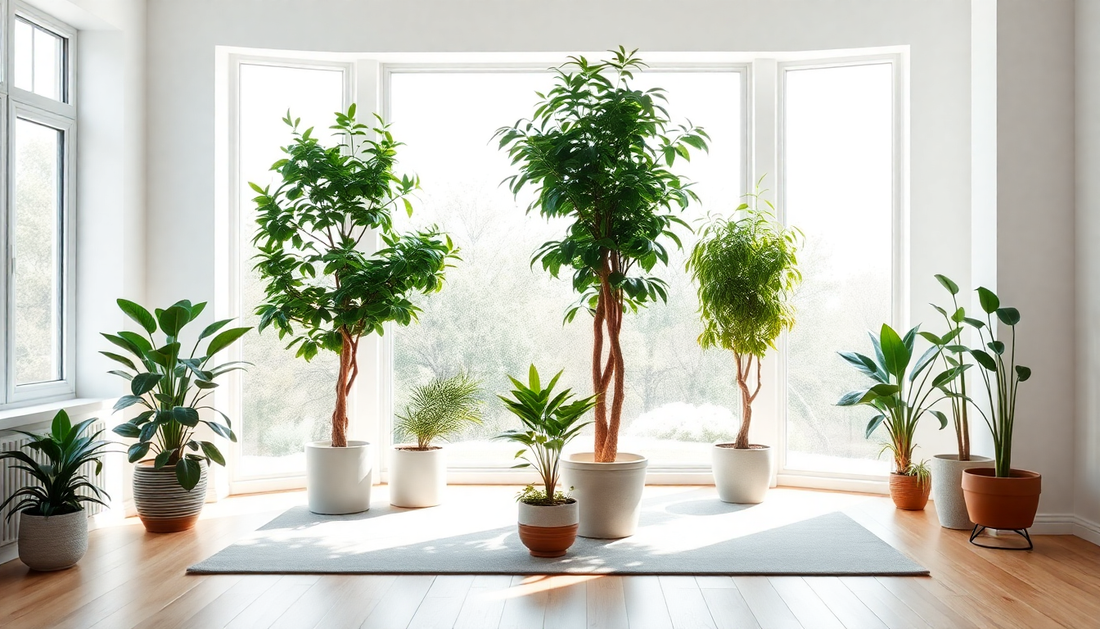
5 Indoor Plants That Can Help Reduce Allergies
Share
As the weather turns colder and we spend more time indoors, it's important to consider the impact our indoor environments can have on our health, especially for those of us who suffer from allergies. Fortunately, there are certain indoor plants that can help improve air quality and even reduce allergy symptoms.
Idyl, an online plant shop based in Bangalore, offers a wide selection of allergy-friendly indoor plants that can transform your living space. In this blog post, we'll explore five of the best indoor plants that can help reduce allergies and improve the air you breathe.
1. Snake Plant (Sansevieria)
The snake plant, also known as mother-in-law's tongue, is a popular choice for allergy sufferers. This hardy succulent is known for its ability to purify the air by removing harmful toxins, such as benzene and formaldehyde, from the atmosphere. Additionally, snake plants release oxygen at night, making them an excellent choice for bedrooms.
Snake plants are also low-maintenance, requiring infrequent watering and thriving in a variety of lighting conditions. They're a great option for those with busy lifestyles or limited gardening experience.
2. Peace Lily (Spathiphyllum)
The peace lily is a beautiful and versatile indoor plant that can help reduce allergy symptoms. This plant is known for its ability to remove a wide range of airborne pollutants, including benzene, formaldehyde, and trichloroethylene.
Peace lilies are also known for their ability to indicate when they need water, making them easy to care for. When the leaves start to droop, it's a sign that the plant needs to be watered. With proper care, peace lilies can bloom throughout the year, adding a touch of elegance to any indoor space.
3. English Ivy (Hedera helix)
English ivy is a trailing plant that is highly effective at removing airborne toxins, including formaldehyde and benzene. This plant is particularly useful for those with respiratory allergies, as it can help filter out mold spores and other allergens.
English ivy is a low-maintenance plant that thrives in a variety of lighting conditions. It's important to note, however, that English ivy can be toxic to pets, so it's important to keep it out of reach of curious furry friends.
4. Aloe Vera (Aloe barbadensis)
Aloe vera is a succulent that is not only beautiful, but also highly effective at purifying the air. This plant is known for its ability to remove formaldehyde, a common indoor pollutant found in furniture, carpets, and cleaning products.
Aloe vera is also known for its soothing and healing properties, making it a great addition to any indoor space. It's important to note that aloe vera plants can be toxic to pets, so it's important to keep them out of reach.
5. Chrysanthemum (Chrysanthemum morifolium)
Chrysanthemums are a vibrant and cheerful addition to any indoor space, and they also happen to be highly effective at removing benzene and formaldehyde from the air. These flowers are particularly useful for those with allergies, as they can help filter out pollen and other airborne allergens.
Chrysanthemums are relatively easy to care for, requiring moderate watering and bright, indirect sunlight. They can also be found in a variety of colors, making them a versatile choice for any decor.
At Idyl, we're committed to helping our customers create healthy and allergy-friendly indoor environments. Whether you're looking for snake plants, peace lilies, or any of the other plants mentioned in this blog post, we've got you covered. Visit our website or give us a call to learn more about our selection and how we can help you create a space that's both beautiful and good for your health.
